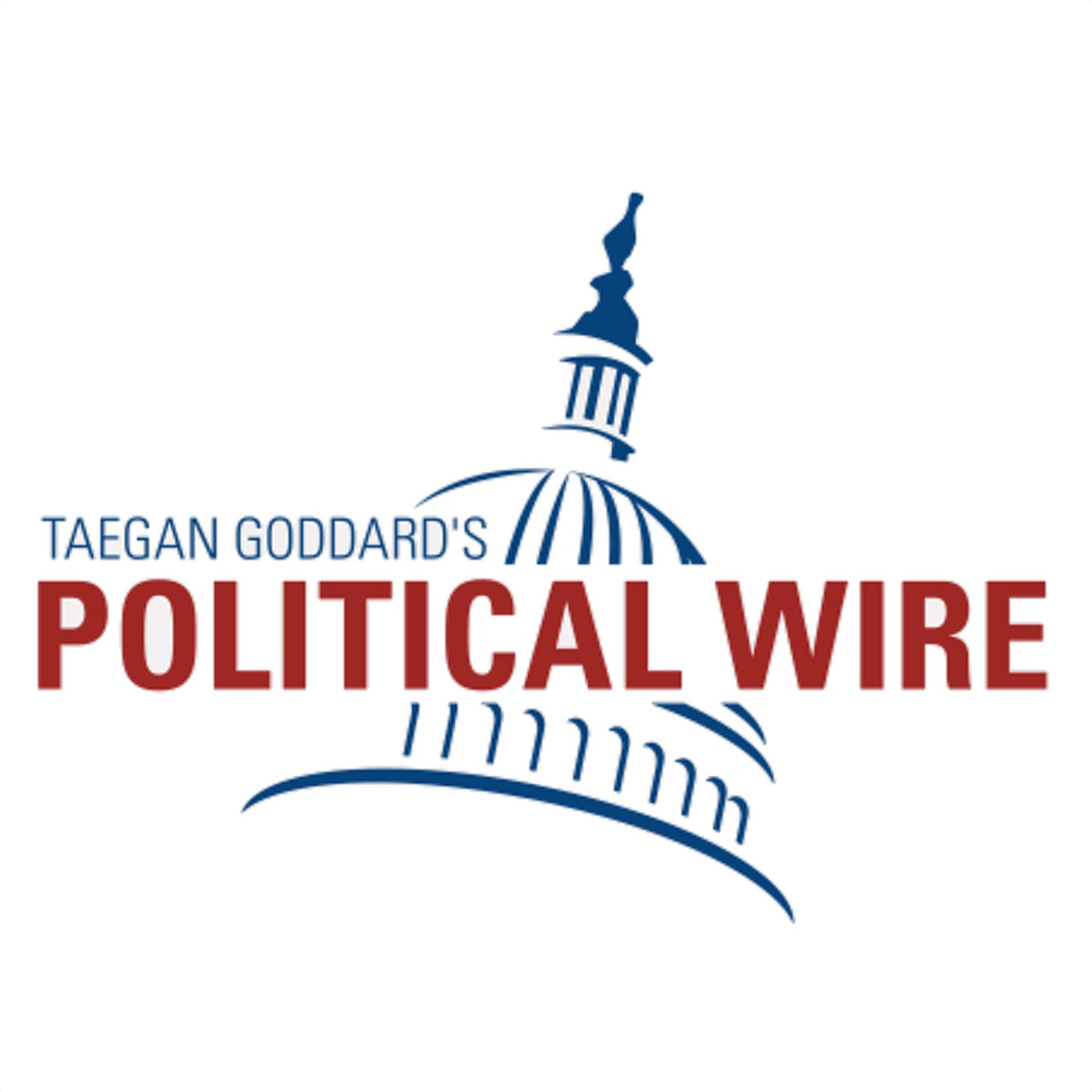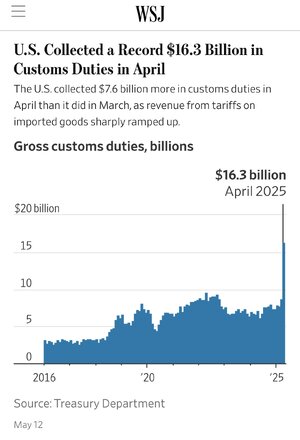TangledUpInBlue06
Esteemed Member
- Messages
- 739
Follow along with the video below to see how to install our site as a web app on your home screen.
Note: This feature may not be available in some browsers.
So we're back to square one, huh? Didn't pay any attention to what's been going on?Ok, but that's still what he's presumably looking to fix, right?
Yes. One way to verify that is to look at Canada. We know that tariffs on Canada were essentially zero before Jan 20 of this year.
IF trillions of $ (a lie) were pouring into the US, then that would be incredibly inflationary.
Was just recently reading about this.IF trillions of $ (a lie) were pouring into the US, then that would be incredibly inflationary.
Snarky reply. And wrong.
You're right. The left are his original annoucement and the right are the modified tariffs while the WH negotiated individual deals.Snarky reply. And wrong.
Not that I know of.So we're back to square one, huh?
What day is it??Didn't pay any attention to what's been going on?
I've said nothing about the trade deficit, only tariffs.The trade deficit is not something to "fix."
The strategy, in general, should be to come to agreements with each country so we aren't getting hit with large tariffs while charging low tariffs.It is a consequence of American choices, mainly the political choice as to deficit spending but also the personal choices about savings rates.
There are two ways to address the overconsumption. First is to make consumption more expensive. Tariffing foreign goods will create a one-time jump in price level, and then consumption will fall. If the consumption can be replaced by domestic production, then consumption will rebound somewhat due to import substitution. But to the extent that domestic production cannot fill the void, what happens is a forced reduction in consumption by Americans. That could come in the form of inflation, or unemployment, or both.
So that's the tariff strategy: make everyone poorer to make imports decline, and hope to make it up through domestic supply.
Another strategy to reduce the trade deficit would be to lower the federal deficit. If we have to borrow less from abroad to finance our public spending, then our trade deficit will also shrink (as they are mirror images of each other). And one way to do that would be to not cut taxes for the rich people yet again. We need more tax revenues, period. If they were serious about the trade deficit, they wouldn't basically be ending all tax enforcement. They would step it up, over and above Biden's increases, since it's a tremendously profitable investment. More taxes paid by Americans to the government = fewer dollars need borrowing from abroad.
Are you going by actual tariffs or trumps chatGPT poster tariffs?Because other countries put significant tariffs on US imports, while the US rarely, if ever, does the same?


We did that. Eight times actually, plus an attempt at a ninth.The strategy, in general, should be to come to agreements with each country so we aren't getting hit with large tariffs while charging low tariffs.
This you?I've said nothing about the trade deficit, only tariffs.
update:Were you worried about Biden's mental status ?
Trump says "hold my Adderall "

Trump admits flubbing figures in rambling trade war speech: 'I misunderstood'
President Donald Trump spoke Monday about negotiations with China that resulted in a dramatic step back from a tariff trade war — but in a rambling speech, he revealed the talks had left him confused.First, he told the press, "Both sides now agreed to reduce the tariffs imposed. After April 2nd...www.rawstory.com

 www.rawstory.com
www.rawstory.com
This is apparently part of 'The Weave', now standard practice in the Executive Branch.China has given us nothing, and we're declaring victory?
Because other countries put significant tariffs on US imports, while the US rarely, if ever, does the same?
